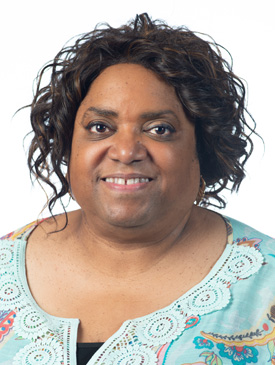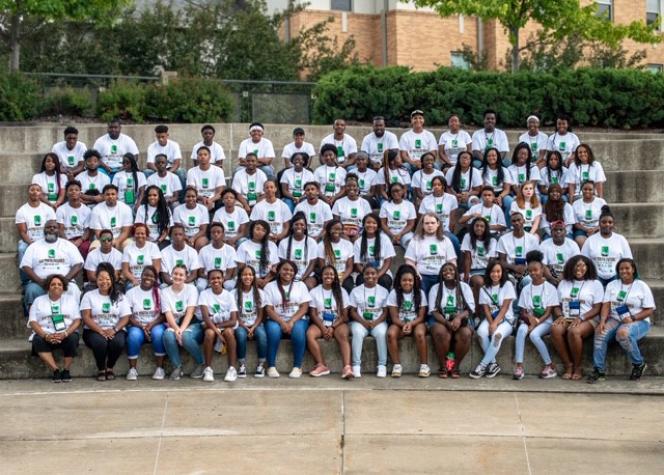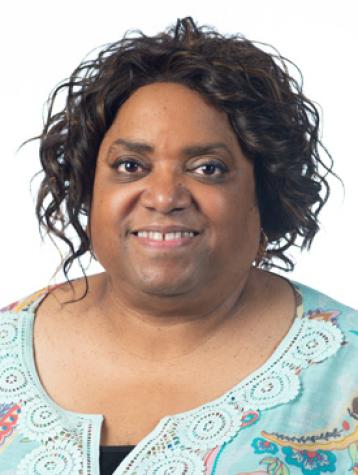Workforce development starts with prepared, engaged youths.
How can private and public partners across Missouri strengthen and enhance the state’s workforce? This is the focus of University of Missouri System Engagement Week, Oct. 26-30, in partnership with the Missouri Chamber of Commerce and Industry. The public is invited to register for the session on Thursday, Oct. 29, to explore how to prepare our workforce for the demands of the 21st century and address Missouri’s grand challenges around economic opportunity, educational access and excellence, and health and well-being. Learn how the Missouri 4-H Center for Youth Development is focusing on career readiness.
COLUMBIA, Mo. – Missouri 4-H has always been about preparing youths for responsible and effective citizenship, leadership and career readiness. For 2020-21, that goal will be even more direct with all University of Missouri Extension 4-H faculty devoting 20% of their time with local youths for college preparation and career readiness. Faculty will share postsecondary opportunities — including trade schools, community colleges and four-year colleges — with eighth graders, helping them prepare early for education after high school.
“Motivating our Missouri 4-H members to finish high school and attend postsecondary education is a cornerstone of our 4-H program, ” said Lupita Fabregas, director of the Missouri 4-H Center for Youth Development. “Using a project-based model, 4-H encourages our youth to find their ‘spark,’ giving them a sense of purpose and direction and finding their calling in life.”
Already a national leader in college and career preparedness through its Youth Futures: College Within Reach program, Missouri 4-H will more formally incorporate this component throughout its more than 100 project areas, including a new six-lesson career readiness SPIN (special interest) club, which will be available to all Missouri youths this fall. Next fall, Missouri 4-H will launch Juntos 4-H, a college- and career-readiness program for Latinx youths grades 8-12.
“We know that educational access and excellence is one of Missouri’s grand challenges and a focus of MU Extension and Engagement work around the state,” said Marshall Stewart, MU vice chancellor for extension and engagement and UM System chief engagement officer. “Today’s children are the workforce leaders and innovators of tomorrow, and Missouri 4-H is leading the way in preparing them to thrive and succeed.”
A statewide committee with 4-H youth development specialists from each of MU Extension’s eight regions will develop resources tailored to meet local needs.
“Everything we do in 4-H helps our youth prepare for future success,” said Donna Garcia, MU Extension state 4-H college and career readiness specialist. “We must become even more intentional and targeted in the way we share this message to help Missouri’s youth and their families understand and access the educational and career opportunities that are available to them.”
Whether a child is interested in cake decorating or dog grooming, raising chickens or designing robots, 4-H wants them to understand how early interests can evolve into rewarding lifelong careers, Garcia said.
“You may discover you love working with animals,” she said. “What are future careers that connect you with that interest? What kind of education and training will you need? How can you prepare yourself for that training? We need to be intentional about those conversations, making those connections.”
Garcia is director of 4-H Youth Futures: College Within Reach, which received the 2020 National Extension Diversity Award from the USDA National Institute of Food and Agriculture and the Cooperative Extension System. Since its start nearly two decades ago, this program has promoted college as an achievable goal for high school youths who are not typically encouraged to attend college, such as “first-generation” students and youths from under-represented racial and ethnic backgrounds.
The immersive program offers mentoring with professionals, job-readiness skills like interviewing and resume writing, and workplace field trips. The program culminates each July with a conference on the MU campus in Columbia.
“Nobody was talking with these students about going to college, so we moved from our more traditional 4-H programming to a focus on changing the pipeline to help these kids get into college,” Garcia said.
The Youth Futures model has expanded to California, Kansas, Massachusetts, Texas, Illinois, North Carolina, Georgia, Louisiana, New Jersey, Alabama and Kentucky. Missouri is the lead state in the National 4-H grant through the U.S. Office of Juvenile Justice and Delinquency Prevention.
With the Youth Futures in-person conference and programs suspended this year due to COVID-19, and students already burning out from online schooling, specialists designed an online mini-conference in June open to all 4-H teens across the state.
“Then the big question was: How are we going to keep our kids engaged throughout the summer?” Garcia said.
The answer was So You Wanna Be…, a video series featuring interviews with an engineer, therapists discussing respiratory and physical therapy, an entrepreneur, a fashion designer, a radiographer and a public health professional.
This series is just a start. Ideas in the works include interviews with people in other occupations ; involving teens in conducting and producing the video interviews; and asking professionals to conduct virtual workplace tours.
Next fall will see the launch of Juntos 4-H, developed by North Carolina State University Extension. The program helps Latinx students and their families bridge the gap between high school and higher education, said Beth Rasa Edwards, a field specialist in 4-H youth development in Jackson County.
“We consult with leaders around the state about what our employers are looking for and expect their employees to have,” Garcia said. “These are the skills we are instilling through 4-H and programs like Youth Futures. When youth complete our program, they are marketable because they have been taught those skills, they have practiced those skills, and we know those are skills they need for life.”
Donna Garcia on investing in Missouri's future workforce

From your 20 years as an elementary and middle school principal, five years as a youth development specialist in St. Louis County and five years as Missouri 4-H’s college- and career-readiness state specialist, what insights can you share with Missouri leaders and employers?
1. Our state cannot afford to discount any child. Every child has the capacity to make it if we are willing to invest and believe in them. That’s why we do this work – because we believe that when the child has the opportunity, they show they can do it.
2. Remember that our children have a voice. Talk to them. Ask them what their needs are. Really listen to what they have to say. Then try to provide the resources to address those needs to help them become the employees we need for the state.
3. Don’t discount or dismiss young people who don’t have precisely the credentials you want on paper. You can have everything on paper, but you will often find those who haven’t had certain experiences or privileges are so ready and eager to excel. Give them a chance too.
Related: Missouri 4-H wins National Extension Diversity Award

